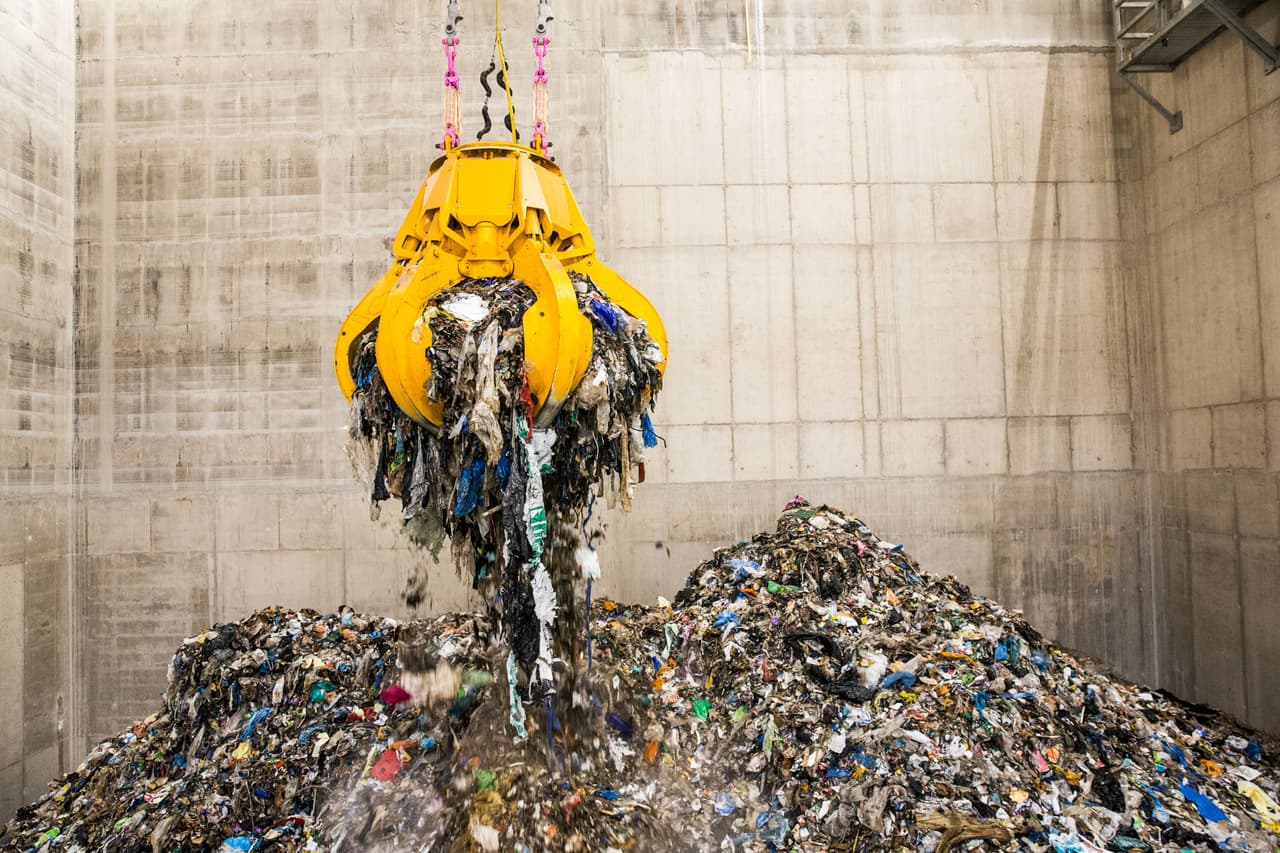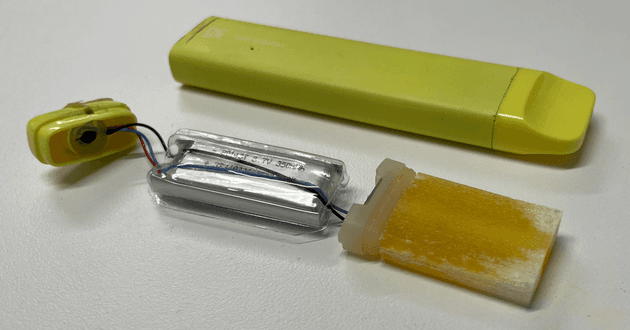
Rise of single-use vapes sending tonnes of lithium to landfill
Millions of disposable vapes that could be recycled are ending up in landfill despite containing lithium, an in-demand metal needed for batteries.
A joint investigation by the Bureau, Sky News and the Daily Telegraph suggests that two disposable vapes are being thrown away every second in the UK. Over a year, this is enough lithium to make roughly 1200 electric car batteries.
Sales of disposable vapes are currently booming. A survey by Opinium – on behalf of Material Focus, a not-for-profit recycling organisation – found 18% of 4,000 people surveyed had bought a vape in the previous year, with 7% buying a single-use device. Having virtually disappeared, disposable vapes now appear to be driving the growth in the overall e-cigarette market.
The Opinium figures would suggest about 168 million disposable vapes are being bought every year in the UK. Two of the biggest brands in the country are Elf Bar and Geek Bar, which between them make up about 60% of the market. Most of the devices, also known as single-use e-cigarettes, contain a rechargeable battery but no charging port and are designed to be disposed of once the battery runs out.
More than half of people that buy single-use vapes bin them, according to the research.
While each vape contains just 0.15g of lithium, the scale of the waste means about 10 tonnes of the metal is ending up in landfills.
“We can’t be throwing these materials away. It really is madness in a climate emergency – lithium is one of the things that is going to fuel the green economy,” Mark Miodownik, professor of materials and society at University College London, said. “It’s in your laptop, it’s in your mobile phone, it’s in electric cars. This is the material that we are absolutely relying on to shift away from fossil fuels. We need to take care of every bit of lithium.”
Lithium demand for batteries is forecast to increase fivefold by 2030, according to one industry consultant. Producing the metal is a complex process that uses huge amounts of energy and water.
In the UK, vapes are classified as waste electrical and electronic equipment (WEEE) and require specialist recycling.
Importers bear certain obligations for electrical and electronic waste and should be listed on the public register under WEEE producer requirements. The Bureau could find no evidence of the importers of Elf Bar and Geek Bar on the register, nor that they take any specific steps to promote recycling. Elf Bar and Geek Bar did not respond to requests for comment.
“The challenge is somebody looks at [a vape] and doesn’t really think about what it’s made of, they think about what it does for them,” said Scott Butler, executive director of Material Focus.
 The contents of an Elf Bar disposable vape
The contents of an Elf Bar disposable vape
Disposable vapes also pose a potential serious risk when not recycled, as the lithium-ion batteries can start fires when crushed in a waste truck or at a waste-processing plant. “They can [catch fire] very fast and very hard, and if they go in the back of a waste vehicle, which they have done, that waste is fuel for that fire,” Butler said.
Disposable vapes come in a range of flavours, including blueberry bubblegum and watermelon, and appeal particularly to young people.
“As we came out of the first lockdown, Geek Bar became really popular,” Dom Nguyen, an employee at a vape shop in Soho, London, said. “We were getting requests for these particular Geek Bars and then eventually all vape shops were stocking the device and there were shortages … It caused a craze because when you can’t get something, you want more of it.”
Office for National Statistics data from 2020 found that 6.4% of people in the UK vape, while another 7.8% had tried vaping.
Sheila Duffy, chief executive of the charity Action on Smoking and Health Scotland, said: “Disposable e-cigarettes are of particular concern as these products are designed exclusively for single use and the size of the market has increased exponentially during the last year, especially due to their popularity with younger people.”
The charity is calling for a Holyrood review to consider if “regulatory action is needed to address the risks of any ecological damage” from disposable vapes.
A spokesperson for the Department for Environment, Food and Rural Affairs said it will be exploring improvements to the collection and recycling of electronic equipment this year.
To find your nearest electronics recycling point in the UK, search using your postcode here
www.recycleyourelectricals.org.ukHeader image: A waste energy plant in Northwich. Credit: Matthew Lloyd/Bloomberg via Getty
Reporter: Matthew Chapman
Impact producer: Paul Eccles
Global health editor: Chrissie Giles
Global editor: James Ball
Editor: Meirion Jones
Production editor: Frankie Goodway
Fact checker: Samuel Horti
Legal team: Stephen Shotnes (Simons Muirhead Burton)
Our reporting on tobacco is part of our Global Health project, which has a number of funders. Our Big Tobacco project is funded by Vital Strategies. None of our funders have any influence over the Bureau’s editorial decisions or output.
-
Subject:
-
Area:






